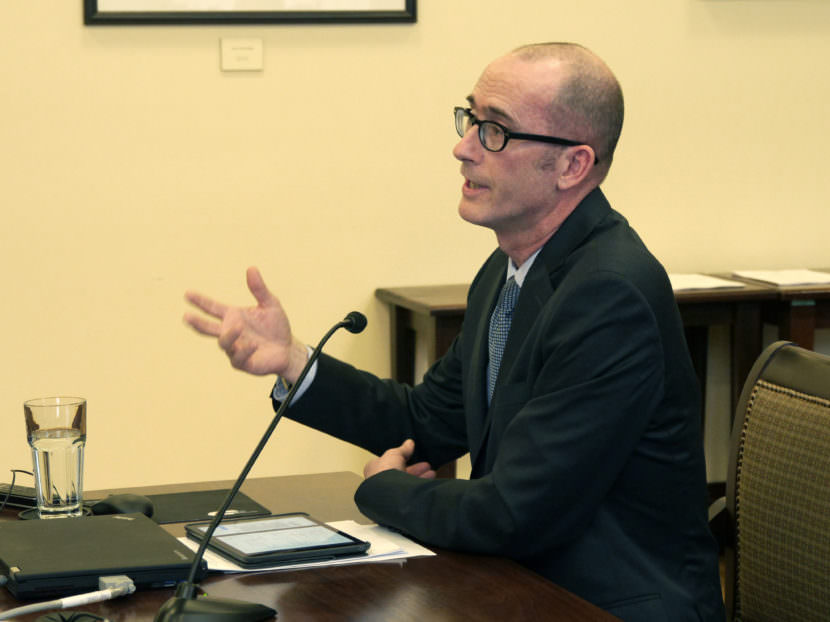
Lawmakers looking to tighten penalties for some felonies and thefts are weighing two factors.
On one hand, they’ve heard from members of the public and law enforcement that last year’s criminal-justice overhaul went too far in letting offenders go without jail time.
On the other, social science research that shaped the law points to evidence that sending many offenders to jail will actually increase the likelihood they’ll commit more violations in the future.
North Pole Republican Sen. John Coghill describes the dilemma in using research to set sentencing ranges that also will satisfy the public.
“I don’t know that we can actually get any data that will help us on this, unfortunately, because in looking at the data, they’re saying ‘The less jail time, the less recidivism,’ and our public is not going to be satisfied with that at this point,” Coghill said.
The Senate Judiciary committee on Wednesday discussed Senate Bill 54, which would revise last year’s crime law.
Until last year, those who committed class C felonies could receive up to two years in jail but the new law changed this. It allowed first-time offenders to receive probation. Now lawmakers want first-time offenders to serve some jail time, but there’s differences over how long the sentencing range should be. Prosecutors want it to be up to a year.
Department of Law Criminal Division Director John Skidmore said judges aren’t able to use their discretion.
“Courts have to have the discretion to look at a particular offense, to look at a particular defender and decide, is this someone who should be in jail, and we can put on probation, or is this someone who does need some jail time?” Skidmore said.
State Public Defender Quinlan Steiner argued that the sentences for class C felonies should be no more than 90 days. He said the Alaska Criminal Justice Commission recommended scaling back sentences based on evidence from other states that first-time offenders engage in crime after they’re jailed.
“The very act of putting people in jail, put the public at risk when – if you didn’t put them in jail, they’re be less risk,” Steiner said.
The Senate Judiciary Committee also plans to weigh the cost of increasing jail times the Legislature cut last year.
Andrew Kitchenman is the state government and politics reporter for Alaska Public Media and KTOO in Juneau. Reach him at akitchenman@alaskapublic.org.




